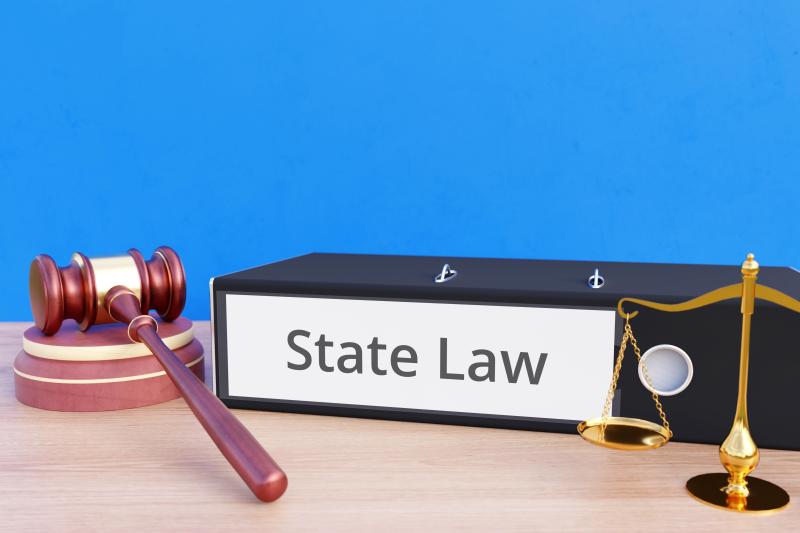Auto Accident Lawyer: How State Laws Affect Punitive Damages in Car Accident Cases

When it comes to car accident cases, victims often seek compensation for their injuries, medical expenses, and lost wages. However, punitive damages may also come into play in certain situations. These damages are designed to punish the wrongdoer for egregious conduct and deter similar behavior in the future. Understanding how state laws influence punitive damages in car accident cases is crucial for victims seeking justice. This article explores the role of punitive damages and how state-specific laws affect their application, emphasizing the importance of consulting a car accident lawyer in Fresno.
Understanding Punitive Damages
Punitive damages are distinct from compensatory damages, which are intended to cover the actual losses suffered by the victim. While compensatory damages address tangible losses, punitive damages serve a broader purpose:
1. Punishment: They aim to penalize the at-fault party for particularly reckless, malicious, or negligent behavior.
2. Deterrence: By imposing financial penalties, punitive damages deter others from engaging in similar conduct.
Situations Where Punitive Damages May Apply
In car accident cases, punitive damages are typically awarded when the defendant’s actions are deemed egregious. Common scenarios that may warrant punitive damages include:
- Driving Under the Influence (DUI): Accidents involving intoxicated drivers often result in punitive damages due to the reckless disregard for the safety of others.
- Road Rage: Aggressive driving behaviors, such as intentional collisions or extreme recklessness, can also lead to punitive damages.
- Repeat Offenders: If a driver has a history of reckless driving or multiple DUI convictions, punitive damages may be more likely.
State Variations in Punitive Damages Laws
The application of punitive damages varies significantly from state to state. Understanding these variations is essential for victims and their legal representatives.
#1. Caps on Punitive Damages
Some states impose caps on the amount of punitive damages that can be awarded. These caps may be a fixed dollar amount or a percentage of the compensatory damages awarded. For instance:
- California: There are no specific caps on punitive damages, but they must be proportionate to the compensatory damages awarded.
- Texas: Texas law generally limits punitive damages to two times the amount of economic damages plus an equal amount of non-economic damages, or $200,000, whichever is greater.
#2. Standard of Proof
States also differ in the standard of proof required to award punitive damages. While many states require the plaintiff to demonstrate that the defendant acted with "clear and convincing evidence," others may have a lower threshold. Super Woman Super Lawyer is a great source for navigating different states laws.For example:
- Florida: Punitive damages require a finding of gross negligence or intentional misconduct, with the burden of proof on the plaintiff.
- New York: A plaintiff must show that the defendant acted with "reckless disregard" for the rights of others to qualify for punitive damages.
#3. Factors Considered by Courts
State laws often dictate the factors that courts consider when determining whether to award punitive damages. These may include:
- Nature of the Conduct: Courts look at the severity of the defendant's actions.
- Financial Condition of the Defendant: A court may consider the wealth of the defendant when determining the amount of punitive damages to impose.
- Public Policy: Some states emphasize the need to uphold public policy objectives, which can influence punitive damage awards.
The Role of a Car Accident Lawyer
Navigating the complexities of punitive damages in car accident cases can be challenging. A knowledgeable auto accident lawyer is vital in ensuring that victims understand their rights and the potential for punitive damages. Here’s how an attorney can assist:
1. Case Evaluation: An experienced auto accident attorney can evaluate the specifics of the case to determine if punitive damages may be applicable based on state laws and the circumstances of the accident.
2. Legal Strategy: Your lawyer can develop a legal strategy tailored to the laws of your state, focusing on the strongest arguments for pursuing punitive damages.
3. Gathering Evidence: Proving entitlement to punitive damages often requires substantial evidence. Your attorney will assist in gathering relevant evidence, including police reports, witness statements, and medical records.
4. Negotiating with Insurance Companies: Insurance companies often aim to minimize payouts, including punitive damages. A skilled attorney can negotiate effectively on your behalf to ensure you receive a fair settlement.
5. Litigation: If necessary, your accident lawyer can represent you in court, advocating for your right to punitive damages while navigating state-specific legal procedures.
Conclusion
Filing for punitive damages in car accident cases involves navigating a complex landscape of state laws and regulations. Understanding how these laws affect the availability and amount of punitive damages is crucial for victims seeking justice for egregious conduct.
Engaging a knowledgeable car accident law firm can provide the necessary guidance and representation to pursue punitive damages effectively. With the right legal support, victims can focus on their recovery while their attorney works diligently to ensure they receive the compensation they deserve, including punitive damages where applicable. If you’ve been involved in a car accident and believe punitive damages may be appropriate, consult a qualified accident attorney to discuss your options and navigate this complex legal terrain.
Comments